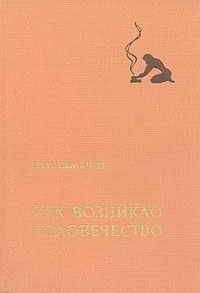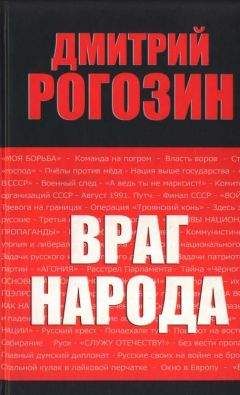Сэмюэл Хантингтон - Политический порядок в меняющихся обществах
6. Реформа и политическое изменение
(1) Albert О. Hirschman, Journeys Toward Progress (New York, Twentieth Century Fund, 1963), p. 267.
(2) См.: Charles E. Lindblom, «The Science of 'Muddling Through'», Public Administration Review, 19 (Spring 1959), p. 79–88.
(3) Dankwart A. Rustow, A World of Nations, p. 126–127. О стратегии Кемаля и тактике осуществления реформ см. в: Rustow, «The Army and the Founding of the Turkish Republic», World Politics, 11 (July 1959), 545 ff.; Bernard Lewis, The Emergence of Modern Turkey (London, Oxford University Press, 1961), p. 254; Richard D. Robinson, The First Turkish Republic (Cambridge, Harvard University Press, 1963), p. 65–66, 69, 80–81; Lord Kinross, Ataturk (New York, William Morrow, 1965), p. 430.
(4) Mustapha Kemal, A Speech Delivered by Ghazi Mustapha Kemal, President of the Turkish Republic, October 1927 (Leipzig, K.F.Koehler, 1929), p. 119.
(5) Цит. в: Lewis, p. 257.
(6) Peter F. Sugar, «Economic and Political Modernization: Turkey», in Robert E. Ward and Dankwart A. Rustow, eds., Political Modernization in Japan and Turkey (Princeton, Princeton University Press, 1964), p. 174; Z.Y.Hershlag, Turkey: An Economy in Transition (The Hague, Van Keulen, 1958), Chap. 11, 14,15.
(7) Kemal, p. 598.
(8) Frederick W. Frey, «Political Development, Power and Communications», in Pye, ed., Communications and Political Development, p. 314–315.
(9) Cardinal Richelieu, Political Testament (tr. H.B.Hill, Madison, University of Wisconsin Press, 1961), p. 75.
(10) Kenneth Clark, «Desegregation: An Appraisal of the Evidence», Journal of Social Issues, 9 (1953), 43; курсив в оригинале. См. также: Ronald Lippitt et at., The Dynamics of Planned Change (New York, Harcourt, Brace, 1958), p. 58–59.
(11) Kinross, p. 431.
(12) Guy Wint, «The 1958 Revolution in Pakistan», St Anthony's Papers (No. 8,1960), 79.
(13) Николо Макиавелли. Государь(M., ЭКСМО-ПРЕСС; Харьков, ФОЛИО, 1999), с. 63.
(14) Frey, р. 313–314 (курсив в оригинале).
(15) Joseph Hamburger, James Mill and the Art of Revolution (New Haven, Yale University Press, 1963), p. 277–278; Myron Weiner, The Politics of Scarcity, Chap. 8. Относительно роли насилия в осуществлении реформ вообще см.: Hirschman, р. 256–260 и H.I. Niebung, «The Threat of Violence and Social Change», American Political Science Review, 56 (Dec. 1962), p. 865–873.
(16) Цит. в: Hamburger, p. 278.
(17) Arthur I. Waskow, From Race Riot to Sit-In, 1919 and 1960s (Garden City. N.Y., Doubleday, 1966), p. 278–279.
(18) Harold D. Lasswell and Abraham Kaplan, Power and Society (New Haven, Yale University Press, 1950), p. 276; Carl J. Friedrich, Man and His Government (New York, McGraw-Hill, 1963), p. 641; Palmer, The Age of the Democratic Revolutions, 2, 574.
(19) А. Де Токвиль. Старый порядок и революция // М.: Московский философский фонд, 1997. С. 149–150.
(20) К несчастью, вопрос о том, когда умиротворение в международных отношениях действительно умиротворяет, а когда оно, наоборот, возбуждает, теоретически исследован мало. Полезное краткое его обсуждение см. в работе: George A. Lanyi, «The Problem of Appeasement», World Politics, 15 (Jan. 1963), p. 316–329. Несколько работ в обширной литературе о мирном изменении также имеют отношение к этой теме. См. в частности: Вгусе С. Wood, Peaceful Change and the Colonial Problem (New York, Columbia University Press, 1940) и Lincoln Bloomfield, Evolution or Revolution? (Cambridge, Harvard University Press, 1957). Нельзя заходить слишком далеко в проведении параллелей и (или) аналогий между внутренней и международной политикой. На внутриполитической сцене обычно действуют консерваторы, реформаторы и революционеры, на международной — страны-сторонники статус-кво и неудовлетворенные страны. Революционеры обычно привержены революции как необходимому средству и отрицают возможность достижения результатов революции без революции. Неудовлетворенные страны, напротив, часто предпочли бы достичь результатов войны, не воюя.
(21) Ленин. Цит. по кн.: Bertram D. Wolfe, Three Who Made a Revolution (Boston, Beacon Press, 1955), p. 120, и в кн.: Alfred G. Meyer, Leninism (Cambridge, Harvard University Press, 1957), p. 377. См. ниже, на с. 377, о несколько иной оценке Лениным земельных реформ.
(22) Цит. у Токвиля, с. 161–62.
(23) Frank Tannenbaum, «On Political Stability», Political Science Quarterly, 75 (June 1960), 169.
(24) См.: Seymour Martin Lipset, «Democracy and the Social System», in Harry Eckstein, ed., Internal War (New York, The Free Press, 1964), p. 296–302.
(25) Lasswell and Kaplan, p. 267.
(26) См. сводку данных у Сеймура Мартина Липсета в работе: «University Students and Politics in Underdeveloped Countries», in Lipset, ed., «Special Issue on Student Politics», Comparative Education Survey, 10 (June 1966), 132 ff.
(27) Henderson, Korea: The Politics of the Vortex, p. 181.
(28) John P. Harrison, «The Role of the Intellectual in Fomenting Change: The University», in TePaske and Fischer, eds., Explosive Forces in Latin America, p. 33; Red Flag, цит. в: Boston Globe, July 5,1966, p. 14.
(29) Lipset, p. 140–141.
(30) Mosse, Alexander II and the Modernization of Russia, p. 125–126; Franco Venturi, Roots of Revolution (New York, Grosset and Dunlap, 1966), p. 222–226; Michael Karpovich, Imperial Russia, 1801–1917 (Hew York, Holt, Rinehart and Winston, 1932), p. 46.
(31) Nicolas S. Timasheff, War and Revolution (New York, Sheed and Ward, 1965), p. 179–180.
(32) Howard J. Wiarda, «The Context of United States Policy toward Dominican Republic: Background to the Revolution of 1965» (неопубликованная работа, Harvard University, Center for International Affairs, 1966), p. 30–31.
(33) Eugene B. Mihaly and Joan M. Nelson, «Political Development and U S. Economic Assistance» (неопубликованная работа), с. 8.
(34) Palmer, 482
(35) Смысл фраз «земельная реформа» и «аграрная реформа» различается, как «что» и «как». В плане предмета, или «что», выражение «земельная реформа» обозначает перераспределение собственности на землю, а значит, и дохода от землепользования. «Аграрная реформа» относится к улучшению агротехники, сельскохозяйственного оборудования, удобрения, поддержания плодородия почвы, севооборота, ирригации и сбыта. Результатом всего этого является повышение продуктивности и эффективности хозяйствования. Наше основное внимание направлено на земельную реформу, поскольку она имеет наиболее прямое отношение к политической стабильности. Аграрная реформа без земельной может повысить экономическую продуктивность и одновременно политическую нестабильность деревни. Земельная без аграрной может повысить стабильность, но снизить продуктивность. В плане «как», выражение «земельная реформа», будучи применено без оговорок, означает перемены в землевладении, достигнутые без революции. Поскольку все революции влекут за собой и изменения в порядке землевладения, последние надо квалифицировать как «революционная земельная реформа», отличая ее таким образом от земельной реформы мирными методами.
(36) Приведены цитаты, последовательно, из: Henderson, р. 1956–1957; Lloyd I. Rudolph and Susanne Hoeber Rudolph, «Toward Political Stability in Underdeveloped Countries: The Case of India», Public Policy (Cambridge, Graduate School of Public Administration, 1959), 9,166; Royal Institute of International Affairs, Agrarian Reform in Latin America (London, Oxford University Press, 1962), p. 14; Charles J. Erasmus, «A Comparative Study of Agrarian Reform in Venezuela, Bolivia and Mexico», in Dwight B. Heath, Charles J. Erasmus, Hans С Buechler, Land Reform and Social Revolution in Bolivia (unpublished manuscript, University of Wisconsin, Land Tenure Center, 1966), p. 708–709.
(37) Stolypin, цит. у William Henry Chamberlin, «The Ordeal of the Russian Peasantry», Russian Review, 14 (October 1955), p. 297.
(38) Цитаты и данные взяты у Wolfe, p. 360–361.
(39) Mosse, p. 60; Jerome Blum, Lord and Peasant in Russia (Princeton, Princeton University Press, 1961), p. 592.
(40) Thomas F. Carroll, «Land Reform as an Explosive Force in Latin America», in TePaske and Fisher, p. 84.
(41) Doreen Warriner, Land Reform and Development in the Middle East, (2d ed. London, Oxford University Press, 1962), p. 208–209.
(42) Cm. Sidney Klein, The Pattern of Land Tenure Reform in East Asia After World War II (New York, Bookman, 1958), p. 230, 250; R. P. Dore, Land Reform in Japan (New York, Oxford University Press, 1959).
(43) Gabriel Baer, A History of Landownership in Modern Egypt, 1800–1950 (London, Oxford University Press, 1962), p. 13 ff. Мое рассмотрение египетского примера базируется в основном на этой книге.
(44) Ibid., р. 214–215, 220–222.
(45) Премьер-министр Али Амини, цит. по: Donald N. Wilber, Contemporary Iran (New York, Praeger, 1963), p. 126.
(46) Edwin Lieuwen, Generals vs. Presidents, p. 47, 74–84.
(47) Tad Szulc, The Winds of Revolution (New York, Praeger, 1964), p. 182–183.
(48) Gregory Henderson, «Korea: The Politics of the Vortex» (неопубликованная работа, Harvard University, Center for International Affairs, 1966), p. 413, 425–426, 447.
(49) John Duncan Powell, «The Politics of Agrarian Reform in Venezuela: History, System and Process» (Ph.D. thesis, University of Wisconsin, 1966), p. 176–177.
(50) Цит. в: Erasmus, p. 725.
(51) Организация Объединенных Наций, Департамент экономических и социальных проблем, Progress in Land Reform: Third Report (United Nations, 1962), p. 22.
(52) Jean Grossholtz, Politics in the Philippines (Boston, Little Brown, 1964), p. 71.
(53) Hirschmann, p. 155–156; Carroll, p. 107–108.
(54) Hirschman, p. 142, 157; Премьер-министр Амини, цит. no Jay Walz, New York Times, May 30,1961, p. 2.
(55) Walter С Neale, Economic Change in Rural India (New Haven, Yale University Press, 1962), p. 258.
(56) Wolf Ladejinsky, A Study on Tenurial Conditions in Packaya Districts (New Delhi, Government of India Press, 1965), p. 9.
(57) J. Lossing Buck, «Progress in Land Reform in Asian Countries», in Walter Froehlich, ed., Land Tenure, Industrialization and Social Stability: Experience and Prospects in Asia (Milwaukee, Marquette University Press, 1961), p. 84.
(58) The Economic Weekly (Bombay), Feb. 1964, p. 156, цит. no: Wayne Wilcox, «The Pakistan Coup D'Etat of 1958», Pacific Affairs, 38 (Summer 1965), p. 153.
(59) Erasmus, p. 787.
7. Партии и политическая стабильность
(1) Leonard В. Schapiro, The Communist Party of the Soviet Union (New York, Random House, 1960), p. 258.
(2) Philip Rudolph, North Korea's Political and Economic Structure (New York, Institute of Pacific Relations, 1959), p. 61.
(3) Raymon Vernon, The Dilemma of Mexico's Development (Cambridge, Harvard University Press, 1963), p. 59.
(4) M. Corpierre, «Le totalitarism africain», Preuves, 143 (January 1963), 17, цит. no: Immanuel Wallerstein, «The Decline of the Party in Single-Party African States», La Palombra and Weiner, eds., Political Parties and Political Development, p. 204.




